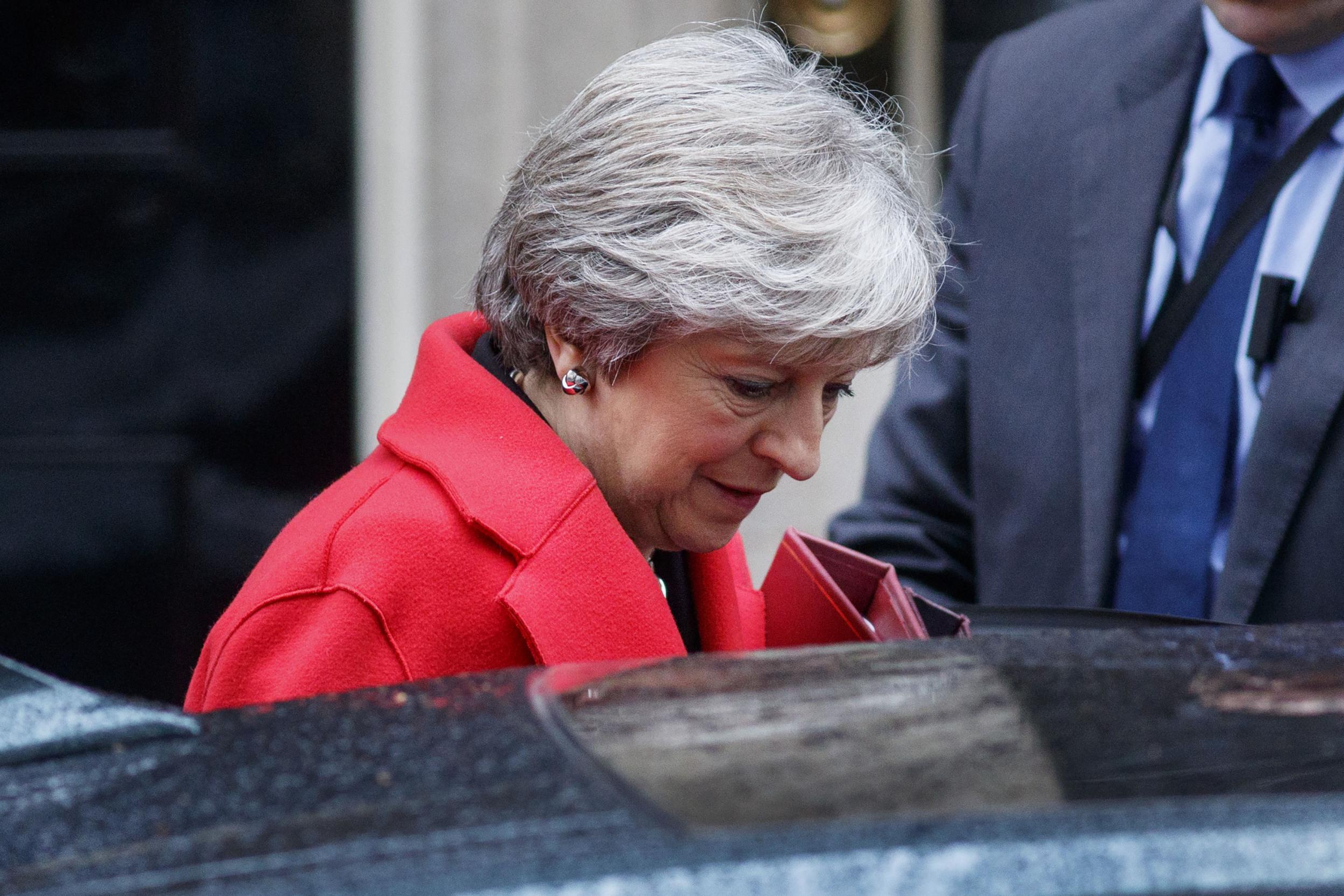Brexit: Downing Street back away from saying Northern Ireland's customs union membership was up for negotiation
Irish border issue remains key stumbling block in Brexit negotiations as Theresa May faces pressure to guarantee no 'hard border'

Your support helps us to tell the story
From reproductive rights to climate change to Big Tech, The Independent is on the ground when the story is developing. Whether it's investigating the financials of Elon Musk's pro-Trump PAC or producing our latest documentary, 'The A Word', which shines a light on the American women fighting for reproductive rights, we know how important it is to parse out the facts from the messaging.
At such a critical moment in US history, we need reporters on the ground. Your donation allows us to keep sending journalists to speak to both sides of the story.
The Independent is trusted by Americans across the entire political spectrum. And unlike many other quality news outlets, we choose not to lock Americans out of our reporting and analysis with paywalls. We believe quality journalism should be available to everyone, paid for by those who can afford it.
Your support makes all the difference.Downing Street has rowed back on claims that Northern Ireland's membership of the customs union was up a "matter for negotiations" as rows over the Irish border threatened to derail Brexit talks.
The Prime Minister's official spokesman sparked confusion on Friday by saying it was up for discussion in Brexit negotiations, in remarks likely prompt concern among Theresa May's allies in the Democratic Unionist Party (DUP), who support the UK leaving the customs union and the single market.
The future of the Northern Ireland border remains a key issue in the talks with Brussels, as the UK leaving the European Union's single market and customs unions would traditionally require a customs border on the island of Ireland.
Ms May is facing intense pressure from both Belfast and Dublin to find a solution amid threats that Ireland will try to block EU trade talks if it is does not receive further assurances that there would be no "hard border".
Asked if Northern Ireland could stay in the customs union after Brexit, Ms May's official spokesman said: "I think that is a matter for negotiations.
"Our position on Northern Ireland has been set out in the papers and we need to continue to negotiate to find an innovative way forward."
However a Downing Street source later insisted that the Government's position that the whole of the UK will leave both the customs union and single market after Brexit has not changed.
Earlier, Irish foreign minister Simon Coveney said it was difficult to see how border checks could be avoided if the UK's departure from the customs union and single market resulted in "regulatory divergence" between the North and the Republic.
But DUP leader Arlene Foster fired off a warning over any divergence between the regulatory framework of Northern Ireland and the British mainland, and warned the Irish government of "using the negotiations in Europe to put forward their views on what they believe the island of Ireland should look like in the future".
In Brussels for a gathering of leaders from the EU and former Soviet states, the Prime Minister said "we have the same desire - we want to ensure that movement of people and trade across that border can carry on as now".
However Mr Coveney insisted EU leaders would not give the green light for the phase two negotiations to begin at their summit in December unless there was progress on the border issue.
He said British assurances on the issue were "aspirational" and that there had to be a "credible roadmap" from the UK setting out how they would ensure there was no return to a hard border.
Mr Coveney said other member states were fully behind Ireland's stance on the issue, adding: "I don't think Ireland will have to block anything on its own. There is absolute solidarity across 27 countries here. They are with Ireland on this.
Ms May said: "In relation to the border between Northern Ireland and the Republic of Ireland, we and the Irish government continue to talk about the solution to that.
"But we have the same desire - we want to see that movement of people and trade across that border can carry on as now and that we don't create any new barriers to trade or the movement of people across that border.
"That's the outcome that we are both agreed on and that is what we believe is in the best interests of Northern Ireland."
The Prime Minister also held fresh talks with European Council President Donald Tusk at a summit with Eastern European nations on Friday amid reports she is preparing to offer some £40bn to the EU to open up trade talks next month.
Ms May is understood to have secured the backing of the Cabinet to double the amount offered to the EU to around £40bn but she agreed with ministers that the extra cash must be conditional on what kind of trade deal is available.
In further turmoil across the Irish Sea, Taoiseach Leo Varadkar faces the prospect of a snap election over a row about the handling of a police whistleblower scandal.
And talks remain deadlocked at Stormont, which has been without a devolved administration since January.
Join our commenting forum
Join thought-provoking conversations, follow other Independent readers and see their replies
Comments